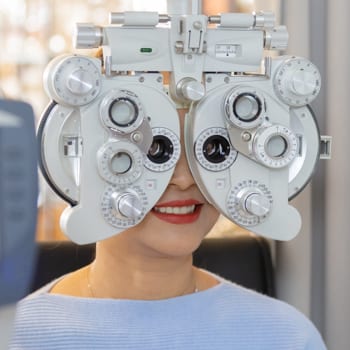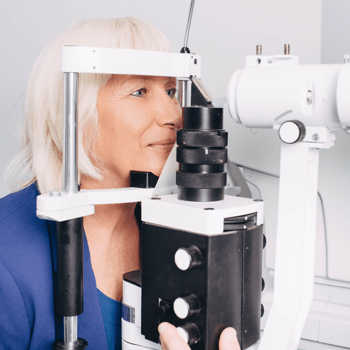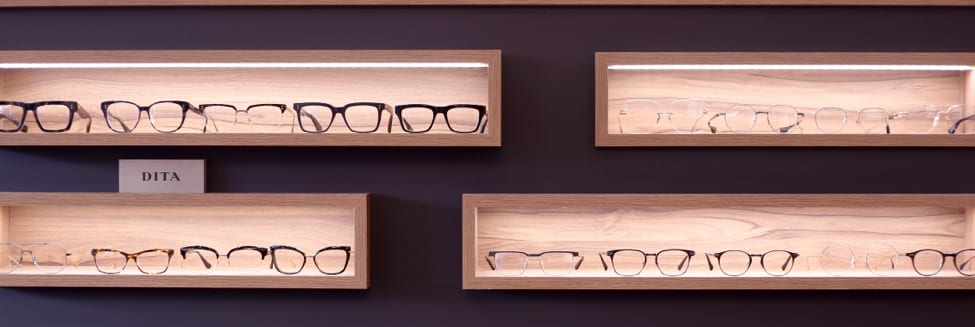Cataracts are among the leading causes of vision loss worldwide, affecting millions of people above the age of 40. They are caused by the clouding of the eye’s natural lens, leading to blurry vision, difficulty seeing at night, and other visual disturbances.
While cataracts can be corrected with glasses or contact lenses in the early stages, and cataract surgery after progression, many people wonder just how long it takes for cataracts to cause blindness.
The time it takes for cataracts to cause blindness can vary greatly. Age-related cataracts, which are quite common, usually take decades to lead to blindness. However, other types of cataracts produce much more rapid vision loss.
This is why it is quite important to book regular eye exams with your eye doctor–while there are no studies that prove prevention of cataracts is possible at this time, early intervention is always best!
Understanding Cataracts
As previously mentioned, cataracts occur when the lens of the eye becomes clouded, leading to blurred vision and visual impairment. The lens, which is normally clear, allows light to pass through and focus on the retina. However, as cataracts develop, this transparency diminishes, causing a range of vision problems.
Types of Cataracts
Cataracts can be classified into four types:
- Age-related cataracts: These are the most common type and, as the name suggests, they’re associated with aging.
- Congenital cataracts: These occur in babies at birth or in children during their early years. They can affect both eyes. While some don’t interfere with vision, others do and need surgical removal.
- Secondary cataracts: These develop as a result of another medical condition, such as diabetes, or from steroid use. They’re known to progress faster than the other types.
- Traumatic cataracts: These form following an eye injury. Interestingly, they can develop immediately post-injury or even years later.
Progression of Cataracts
The progression of cataracts can be influenced by several factors, and it varies from person to person. Age, overall health, and lifestyle are some of the big players in how fast cataracts develop.
Nuclear cataracts are more likely to develop in individuals who smoke, exposure to excessive UV-B radiation and having diabetes can increase the risk of cortical cataracts, and individuals undergoing steroidal treatment, such as inhalers for asthma, those with diabetes, or those exposed to ionizing radiation may experience the formation of posterior subcapsular opacity.
In the early stages, you might not even notice any changes in your vision. But as the cataracts get worse, you’ll start to see symptoms popping up. This could be anything from cloudy or blurred vision to difficulty seeing at night.
So, while cataracts might be common, especially as we get older, there are definitely steps you can take to lower your risk. And remember, if you ever have concerns about your vision, don’t hesitate to check in with your eye doctor.
Timeline to Visual Impairment
It’s essential to understand that cataracts do not lead to sudden blindness. Instead, the progression is gradual, allowing individuals to adapt and seek medical intervention.
The timeline for visual impairment can span several years, with some people maintaining functional vision for an extended period. Cataracts can start setting in as early as the age of 40 and progress typically slowly.
In fact, many people don’t even need cataract surgery until they’ve had the condition for a while, which gives plenty of time to adapt and seek help.
Treatment Options
When it comes to treating cataracts, surgery is usually your best option. This is especially true when glasses or contact lenses can’t correct your vision anymore. The decision to have surgery often depends on the severity of your cataracts and the impact they’re having on your lifestyle.
During cataract surgery, your cloudy natural lens is removed and replaced with a clear artificial one. It’s a safe and effective procedure that can restore your vision and it’s typically a permanent solution.
But remember, if cataracts aren’t seriously affecting your vision, you might not need surgery right away. Sometimes, a simple update to your glasses prescription might be all that’s needed.

Navigating the Cataract Journey with Awareness & Action
The journey from cataracts to visual impairment is a gradual process that varies among individuals. While cataracts don’t lead to immediate blindness, their impact on daily life can be significant.
Regular eye exams, early detection, and timely intervention through cataract surgery can help individuals maintain and restore clear vision, enhancing their overall quality of life.
If you suspect cataracts or experience changes in your vision, consult with an eye care professional at Foresee Eyecare for personalized guidance. Book your next appointment today!




















